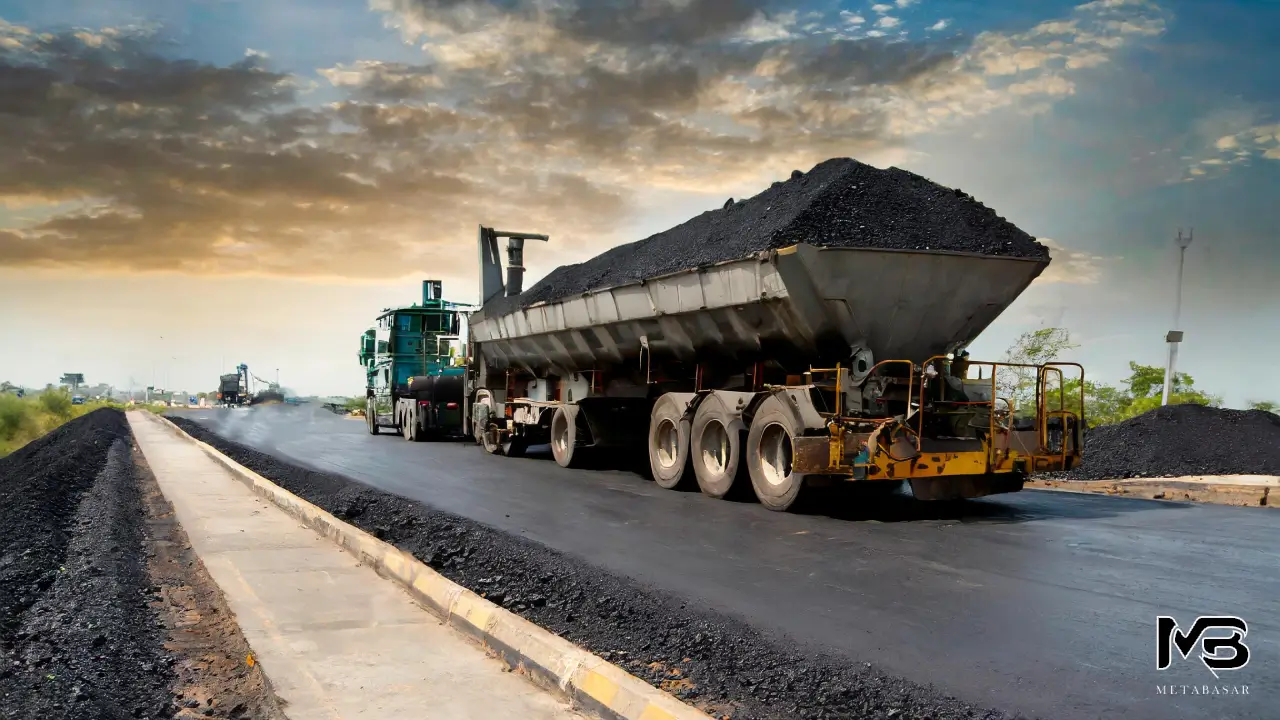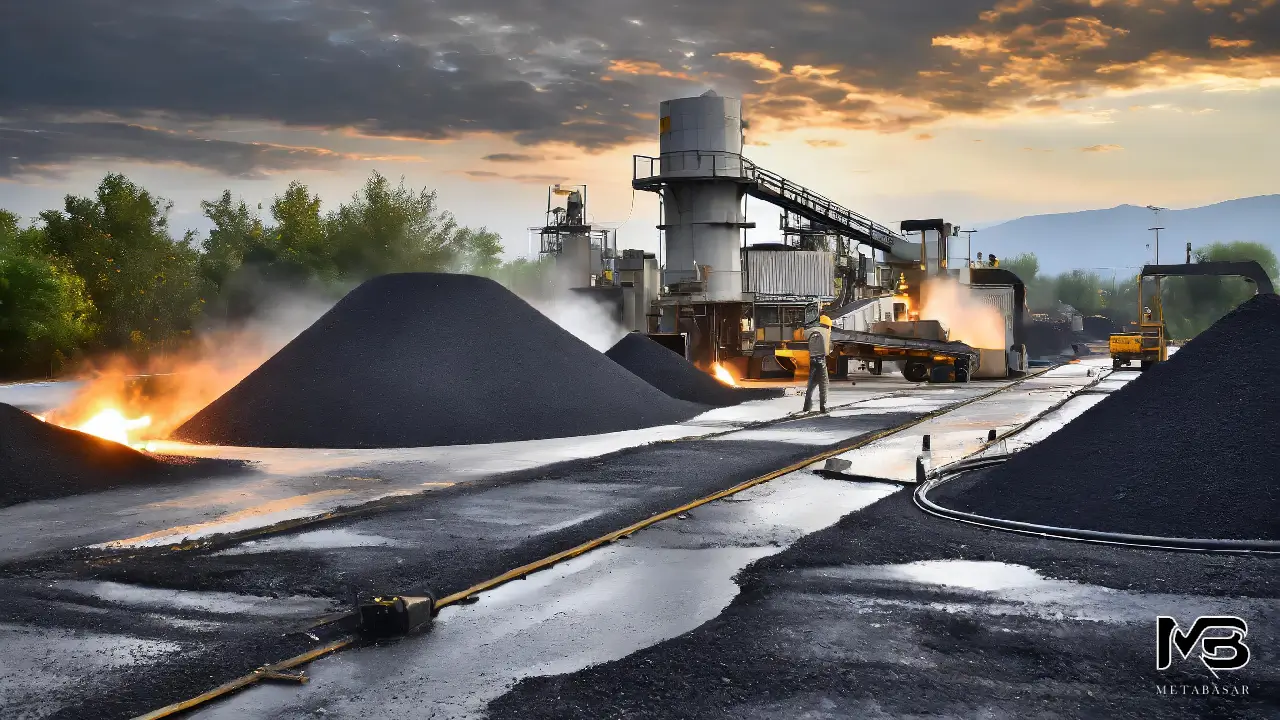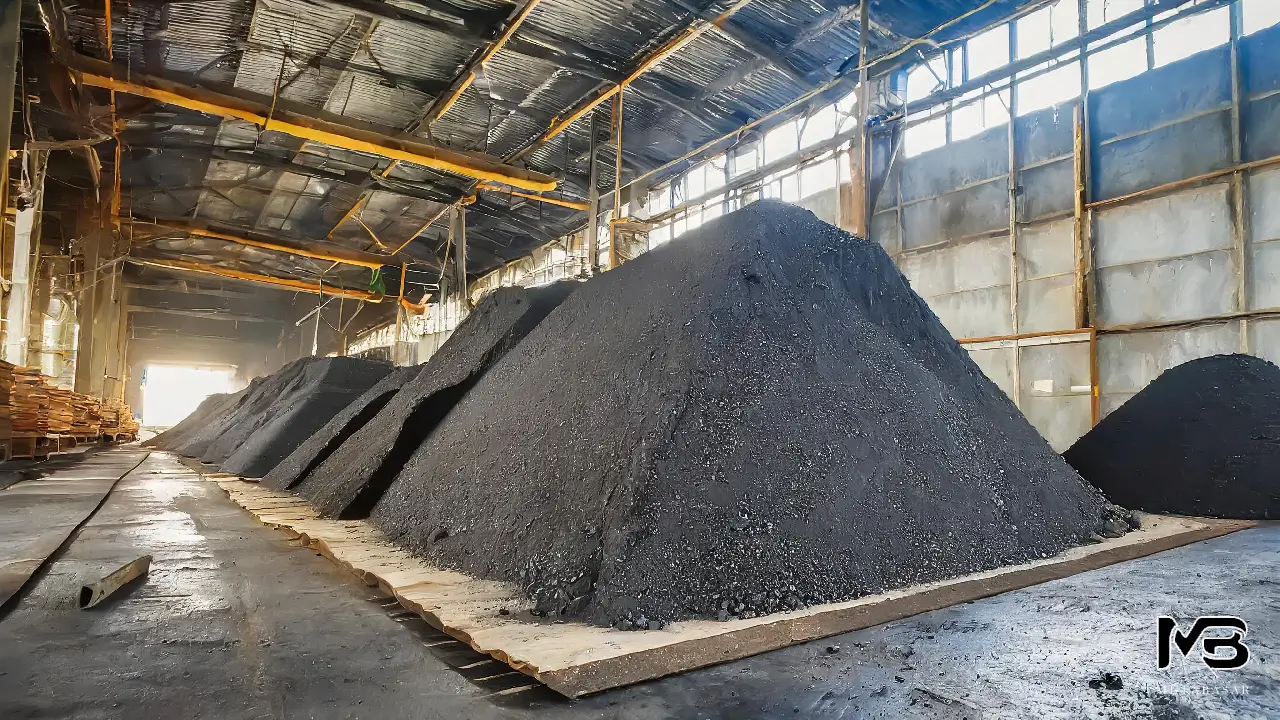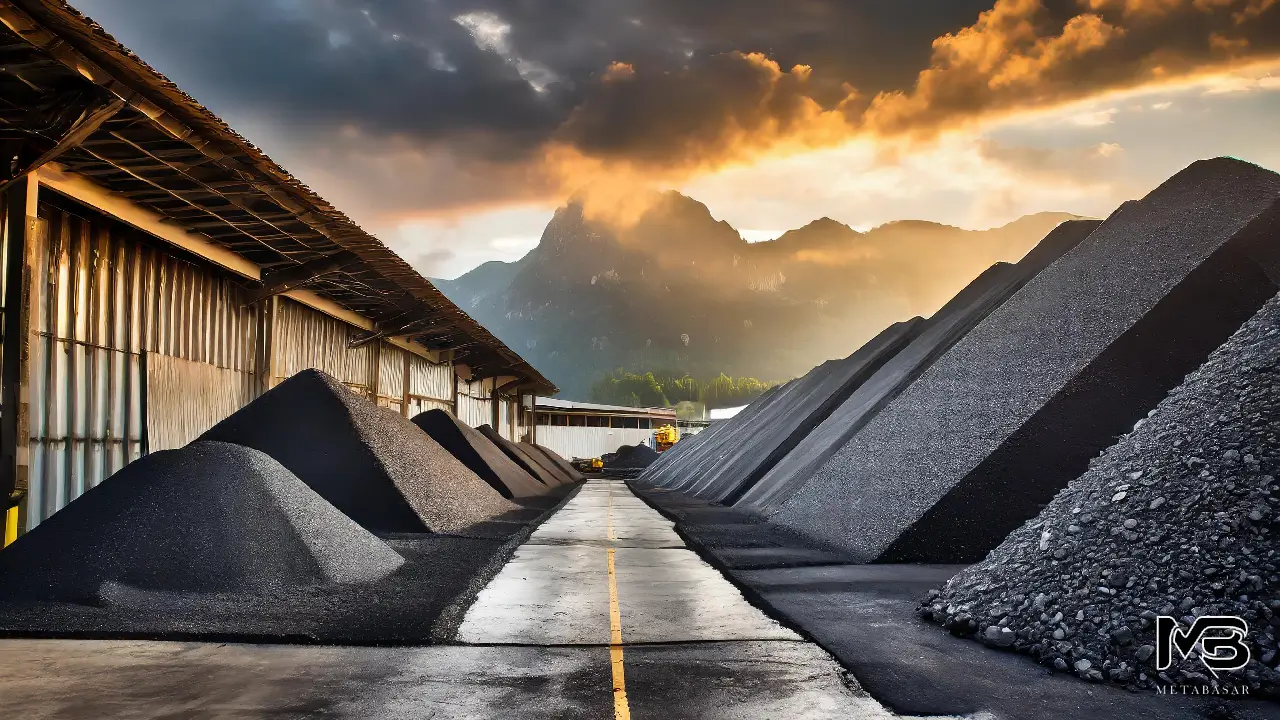There are several types of asphalt available for purchase, including hot mix asphalt (HMA), warm mix asphalt (WMA), and cold mix asphalt (CMA). Each type has its own advantages and is suitable for different applications, so it’s important to choose the right one for your specific needs.
Introduction
When it comes to construction sites, parking lots, or pothole repair, asphalt is often the best way to go.
With its durability and versatility, asphalt can provide a long-lasting solution for various paving needs. However, buying asphalt requires careful consideration of several factors, including determining the asphalt requirement, understanding different types of asphalt, selecting the right asphalt plant, evaluating styles of asphalt plants, assessing the size of asphalt equipment, and deciding between new and used plants. In this blog, we will explore these different aspects of buying asphalt to help you make an informed decision. Let’s dive in!
Table of Content
- 1 Determining the Asphalt Requirement
- 2 Understanding Different Types of Asphalt
- 3 Selecting the Right Asphalt Plant
- 4 Evaluating Styles of Asphalt Plants
- 5 Assessing the Size of Asphalt Equipment
- 6 New vs Used Asphalt Plants
- 7 Manufacturer Support and Warranty
- 8 What if the Asphalt Plant doesn’t meet expectations?
- 9 Frequently Asked Questions
- 10 Conclusion
Determining the Asphalt Requirement
Analyzing your project needs is crucial to determine the asphalt requirement accurately. Whether it’s a small driveway or a large commercial project, understanding the project scope and specifics such as traffic load and environmental factors is essential. Estimating the asphalt volume required in tons will depend on the project area and thickness, ensuring optimal coverage and durability.
Analyzing your project needs
Analyzing your project needs is crucial when determining the asphalt requirement. Different project requirements call for different asphalt options. For construction sites, durability and high production may be the key factors to consider. On the other hand, parking lots may require asphalt options that can withstand heavy traffic and moisture.
When it comes to pothole repair, flexibility and ease of application become important. By taking into account the specific needs of your project, you can choose the best type of asphalt plant and asphalt production method for optimal results.

Estimating the Asphalt volume
Estimating the asphalt volume is essential for determining the amount of asphalt required for your project. This is particularly important for construction sites, parking lots, or pothole repair where efficient paving is crucial. The amount of asphalt needed is typically measured in tons.
Accurate estimates are necessary to ensure that you have enough asphalt for compaction while avoiding any wastage or shortage. By understanding the compaction requirements for your project, you can determine the optimal amount of asphalt needed. This not only helps in efficient paving but also contributes to the durability and long-lasting performance of the asphalt surface.
Understanding Different Types of Asphalt
To make an informed decision when buying asphalt, it’s important to understand the different types of Asphalt available. There are several options to choose from, including hot mix asphalt, warm mix asphalt, and cold mix asphalt. Each type has its own unique characteristics and advantages.
Hot mix asphalt is the most commonly used type, produced at high temperatures, and offers excellent durability.
Warm mix asphalt is produced at lower temperatures, reducing energy consumption and emissions. Cold mix asphalt, on the other hand, is used for temporary repairs and can be applied at lower temperatures. Understanding the differences between these options will help you select the best option for your specific paving needs.

Overview of Batch Plants
Batch plants are a popular type of asphalt plant known for their high production capabilities and durability. These plants work by batch mixing the aggregate and bitumen at a high temperature to produce hot mix asphalt. The batch process allows for precise control over the asphalt mixture, ensuring consistent quality and performance.
Batch plants are an ideal choice for high-production paving projects where efficiency and durability are paramount. Their durability allows for long-term use, reducing the need for frequent repairs or replacements. With proper configuration and maintenance, batch plants can provide a reliable and efficient solution for asphalt production.
Insight into Drum Plants
Drum mix asphalt plants are another type of asphalt plant that offers high production capabilities and durability. Unlike batch plants, drum mix plants mix the aggregate and bitumen together continuously, providing a continuous flow of hot mix asphalt.
This process allows for a more efficient production, making drum mix plants suitable for large-scale paving projects. The durability of drum mix plants is an added advantage, ensuring that the plant can withstand the demands of high-volume asphalt production.
With proper maintenance and regular inspections, drum mix plants can provide reliable and durable asphalt production for construction sites, parking lots, and pothole repair.
Bulk vs Bagged Asphalt
When buying asphalt, you also need to consider whether to purchase it in bulk or in bags. Bulk asphalt is typically used for high production paving projects, where large quantities of asphalt are required. It is delivered in loose form, usually transported by trucks.
Bagged asphalt, on the other hand, offers more flexibility and convenience, particularly for small pothole repair or construction sites. It comes in pre-packaged bags, making it easier to handle, transport, and store.
The choice between bulk and bagged asphalt depends on various factors, including transportation costs, the amount of asphalt needed, and the specific requirements of your project.
Selecting the Right Asphalt Plant
Selecting the right asphalt plant is crucial for ensuring efficient and high-quality asphalt production. Factors to consider when choosing an asphalt plant include new plant options, the type of plant, and the best option for your specific project needs. It is important to evaluate different plant options based on factors such as production capacity, configuration, and technology.
New plant options offer the latest advancements in asphalt production, providing improved efficiency and durability. By considering these factors, you can select the asphalt plant that best aligns with your requirements, ensuring optimal results for your paving project.
Factors to Consider
When selecting an asphalt plant, several factors need to be considered. The first factor is whether to opt for a new plant or consider a used one. While new plants offer the latest technology and features, used plants can be a cost-effective option, provided they are in good condition and meet your production needs.
The type of plant, whether batch or drum, is another important factor to consider. Each type has its own advantages and suitability for different paving projects. Additionally, the best option will depend on your specific project requirements, such as production volume, plant configuration, and the desired quality of asphalt.
By carefully considering these factors, you can make an informed decision when selecting the right asphalt plant.
Size and Capacity of the Plant
The size and capacity of the asphalt plant are crucial considerations when selecting the right plant. High production paving projects require a plant with sufficient capacity to meet the demand. Different names are used to describe the size and capacity of asphalt plants, ranging from small plants suitable for pothole repair to large plants capable of high-volume production.
Assessing the production volume of your project and determining the ideal plant configuration will help you choose the best option. A plant with the right size and capacity ensures efficient and timely asphalt production, allowing for smoother paving operations and high-quality asphalt surfaces.
Technological Aspects
Technological advancements play a significant role in asphalt production, making it important to consider the technological aspects of the asphalt plant. These aspects include plant configuration, milling capabilities, and dryer efficiency. The configuration of the plant, such as the arrangement of components, can impact production efficiency and asphalt quality.
Proper milling of the aggregate ensures uniformity, while an efficient dryer contributes to the moisture control of the asphalt mix. By understanding these technological aspects, you can select an asphalt plant that incorporates the latest advancements, resulting in improved production efficiency, durability, and overall performance of the asphalt.
Evaluating Styles of Asphalt Plants
To make an informed decision when buying asphalt, it’s important to evaluate different styles of asphalt plant options. Each style of plant has its own pros and cons, including factors such as production efficiency, durability, and maintenance costs.
By understanding the advantages and disadvantages of different plant styles, you can select the best option for your specific paving requirements. Evaluating these different styles will also help you identify the compatibility of plant options with your project needs, ensuring that you choose the most suitable asphalt production method.
Pros and Cons of Different Styles
Every style of asphalt plant has its pros and cons, and it’s important to evaluate these when making a decision. The asphalt plant best suited for your project will depend on various factors, including production efficiency, durability, and maintenance costs.
Batch plants offer precise control over the asphalt mix and are known for their high production capabilities, making them suitable for large-scale paving projects. On the other hand, drum mix plants provide continuous asphalt production and are durable options.
Bulk asphalt is best suited for high production, while bagged asphalt offers flexibility for smaller projects. By weighing the pros and cons of different plant styles, you can choose the best way forward for your asphalt production needs.
Compatibility with Project Requirements
When evaluating different plant styles, it is important to assess their compatibility with your project requirements. Consider the specific asphalt options you require for paving and ensure that the selected plant style can produce the desired mix.
Compatibility with your paving requirements, such as asphalt type, aggregate, and compaction, is crucial for achieving quality results. Different asphalt options may require specific production methods, and it’s important to choose a plant style that can meet these requirements.
By considering the compatibility with your project needs, you can select the most suitable plant style for your asphalt production, ensuring optimal performance and durability.
Maintenance and Operational Costs
Maintenance and operational costs are important considerations when buying an asphalt plant. Different plant styles may have varying maintenance and operational requirements, which can impact the overall costs. It is crucial to compare these costs to ensure you choose the most cost-effective option for your specific project.
Assess the maintenance needs of different plant styles, including routine inspections, repairs, and servicing. Additionally, consider the operational costs, including energy consumption and staffing requirements.
By evaluating the maintenance and operational costs, you can select an asphalt plant that meets your budget while ensuring efficient and reliable asphalt production.
Assessing the Size of Asphalt Equipment
Assessing the size of asphalt equipment is essential for determining the efficiency and feasibility of asphalt production. Consider the specifications of equipment, such as pavers, conveyors, and leeboy, to ensure they meet your project requirements. Size and capacity should align with the volume of asphalt needed and the production demands of your project.
Additionally, factors like transportation costs and space availability should be taken into account when assessing asphalt equipment size. By considering these factors, you can choose the most suitable size of asphalt equipment, ensuring smooth paving operations and high-quality asphalt surfaces.
Equipment Specifications
When assessing the size of asphalt equipment, it is important to consider the specifications of the equipment. Different equipment, such as pavers, conveyors, and leeboy, have specific features and capabilities that impact asphalt production.
Evaluate the specifications of pavers, such as paving width and compaction capacity, to ensure they align with your project requirements. Consider the conveyor system, which plays a crucial role in the efficient transportation of materials during asphalt production.
By understanding the specifications of asphalt equipment, you can select the best option that meets your production needs, optimizing paving operations and achieving high-quality asphalt surfaces.
Space and Transportation Considerations
Space and transportation considerations are important factors when assessing asphalt equipment size. Evaluate the available space at your project site, ensuring it can accommodate the asphalt equipment, including pavers, conveyors, and leeboy.
Consider the transportation logistics, such as the costs involved in transporting the equipment to your project site. Transportation costs can vary depending on the size of the equipment, distance, and any special requirements.
By considering space and transportation, you can determine the feasibility of different asphalt equipment options, selecting the best option that meets your project needs while optimizing costs.
New vs Used Asphalt Plants
Choosing between new and used asphalt plants is an important decision that depends on various factors, including cost-benefit analysis, availability, and plant condition. New asphalt plants offer the latest technology, improved efficiency, and performance, but they can come at a higher cost. Used asphalt plants, on the other hand, can be a cost-effective option if they are in good condition and meet your production needs.
Assessing the availability and condition of used plants is crucial, ensuring that they can provide reliable asphalt production. By conducting a comprehensive cost-benefit analysis, you can determine the best option, whether new or used, for your asphalt plant purchase.

Cost-Benefit Analysis
Conducting a cost-benefit analysis is crucial when deciding between new and used asphalt plants. While new plants offer the latest technology and features, they may come at a higher cost. Assessing the long-term benefits, such as improved efficiency, durability, and production capacity, is important to determine the value of a new plant investment.
On the other hand, used plants can offer cost savings, but it is essential to evaluate their condition, maintenance history, and any potential repairs needed. By weighing the costs and benefits, you can make an informed decision, selecting the asphalt plant option that provides the best value and meets your production needs.
Availability and Condition of Used Plants
When considering used asphalt plants, it is important to assess the availability and condition of these plants. Check the availability of used plants in your area, as this may vary depending on the local market. Evaluate the condition of the plant, including its age, maintenance history, and any repairs needed.
Consider the capacity of the plant and whether it meets your production needs. To ensure the reliability and durability of a used plant, look for a reputable seller with a track record of selling high-quality used asphalt plants. By assessing the availability and condition, you can make an informed decision when buying a used plant, balancing cost savings and production requirements.
Manufacturer Support and Warranty
When buying asphalt plants, manufacturer support and warranty are important factors to consider. The after-sales support provided by the manufacturer plays a crucial role in ensuring the smooth operation of the plant. Understanding the importance of after-sales support is essential, as it can impact the durability and performance of the plant.
Additionally, understanding the warranty terms and conditions is important for protecting your investment. By considering the manufacturer’s support and warranty, you can choose an asphalt plant that offers reliable support and favorable warranty terms, providing you with peace of mind and ensuring the long-term success of your asphalt production.
Importance of After-Sales Support
The importance of after-sales support should not be underestimated when buying an asphalt plant. After-sales support ensures that you have access to technical assistance, maintenance services, and spare parts when needed. The level of after-sales support provided by the manufacturer can impact the durability and performance of the plant.
Understanding the manufacturer’s commitment to after-sales support, including response times, availability of service technicians, and accessibility to spare parts, is crucial for smooth plant operation and minimizing downtime.
By choosing a manufacturer that prioritizes after-sales support, you can ensure the long-term success of your asphalt production, with reliable and efficient plant operation.
Understanding Warranty Terms
Understanding the warranty terms is essential when buying an asphalt plant. The warranty provides protection for your investment, covering any defects, repairs, or replacements that may be needed within the warranty period. It is important to carefully review the warranty terms and conditions, including its duration, coverage, and applicable exclusions.
Consider transportation costs, as warranty conditions may require you to cover transportation expenses for plant repairs. By understanding the warranty terms, you can make an informed decision, selecting an asphalt plant that offers favorable warranty coverage, ensuring the long-term protection of your asphalt production.
What if the Asphalt Plant doesn’t meet expectations?
When buying an asphalt plant, it is important to consider what to do if the plant doesn’t meet your expectations. Factors such as inclement weather, production issues, or unexpected challenges may arise, affecting the performance of the plant. In such cases, it is crucial to have a contingency plan in place.
This may involve considering alternative plant options, evaluating different names of asphalt options, or reassessing your project needs. It is important to identify the best option that aligns with your specific requirements and addresses any challenges faced with the asphalt plant.
By being prepared and having alternative solutions in mind, you can navigate any unexpected situations effectively and ensure the successful completion of your paving project.
Frequently Asked Questions
What are the different types of asphalt available for purchase?
There are various types of asphalt available for purchase, including hot mix, warm mix, and cold mix. Hot mix asphalt is the most commonly used type, produced at high temperatures. Warm mix asphalt is environmentally friendly and produced at lower temperatures. Cold mix asphalt is ideal for temporary repairs and can be applied at lower temperatures.
How do I determine how much asphalt I need to buy for my project?
To determine how much asphalt you need to buy for your project, start by measuring the length and width of the area you plan to pave. Then, decide on the desired thickness of your asphalt layer. You can use an online asphalt calculator or consult with a professional to determine the required quantity. It’s also a good idea to order slightly more than you need to account for any waste or unexpected events.
Conclusion
In conclusion, buying asphalt requires careful consideration of various factors such as your project needs, the type of asphalt, the selection of the right asphalt plant, the size of asphalt equipment, and whether to opt for new or used plants. It is essential to evaluate the pros and cons of different styles of asphalt plants, maintenance and operational costs, and the availability and condition of used plants.
Additionally, manufacturer support and warranty play a crucial role in ensuring the longevity and reliability of the asphalt plant. If you have any further questions or need assistance in purchasing asphalt, please refer to our frequently asked questions section or reach out to our knowledgeable team.

